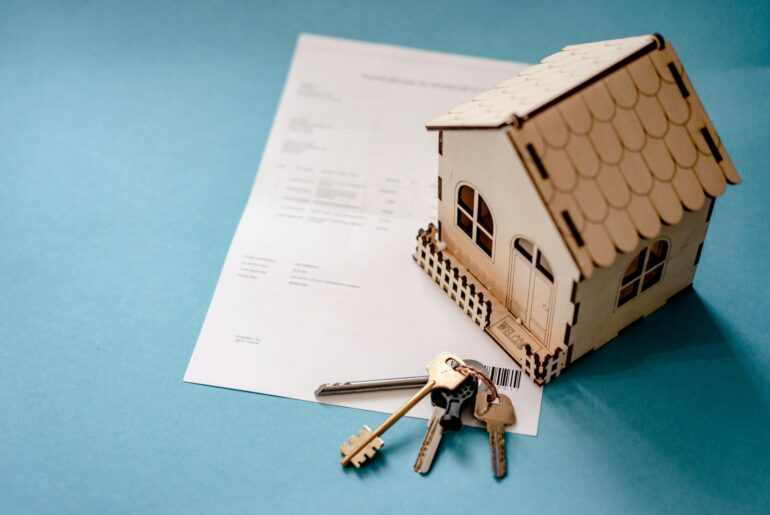This article may contain references to products or services from one or more of our advertisers or partners. We may receive compensation when you click on links to those products or services. Nonetheless, our opinions are our own.
The information presented in this article is accurate to the best of our knowledge at the time of publication. However, information is subject to change, and no guarantees are made about the continued accuracy or completeness of this content after its publication date.
Choosing Between a Cash Purchase and a Mortgage
Purchasing a home often represents one of the most financially significant decisions a person will make. Among the various considerations is whether to buy with cash or finance the home through a mortgage. Each method offers distinct advantages and trade-offs that can influence both immediate financial well-being and long-term wealth. A cash purchase offers simplicity and immediate ownership, while a mortgage allows for capital preservation and the opportunity to invest funds elsewhere. Making the right choice depends heavily on financial position, lifestyle goals, and comfort with debt or liquidity.
Cash Home Buying Advantages and Implications
Immediate Ownership and Simplicity
A home paid for in full offers immediate equity, free from the obligations of monthly payments or interest charges. Buyers avoid navigating the loan approval process, which can expedite closing timelines and provide an advantage in competitive housing markets.
Reduced Costs and Long-Term Savings
Without a loan, there is no interest accumulation; this can result in savings that stretch well into the tens of thousands over the life of a mortgage. Additionally, closing costs are often lower for cash transactions, as many lender-related fees and insurance requirements are removed.
Favorable Position During Negotiations
Sellers often value certainty, and cash offers carry less risk of falling through. This can place a buyer in a stronger position to negotiate on price or terms.
Financial Flexibility of Full Ownership
Once a home is owned outright, the absence of monthly mortgage obligations can free up income for other uses. This offers room to pursue savings, travel, invest in the markets, or simply maintain a more flexible budget.
| Comparison | With Mortgage | Without Mortgage |
|---|---|---|
| Monthly Obligations | High | Minimal |
| Financial Stress | Greater | Lower |
| Liquidity Available | Less | Dependent on savings |
While full ownership provides stability, it may reduce liquidity. Those who commit most of their capital to a property may find themselves short on funds for unforeseen expenses or other investments.
Voted "Best Overall Budgeting App" by Forbes and WSJ
Monarch Money helps you budget, track spending, set goals, and plan your financial future—all in one app.
Get 50% OFF your first year with code MONARCHVIP
The Practical Role of Mortgages
Preserving Capital and Gaining Leverage
Opting for a mortgage can be an effective strategy for those who prefer to keep a portion of their capital accessible.
| Scenario | Monthly Payment | Total Interest Paid |
|---|---|---|
| 30-Year Fixed at 3% | $1,400 | $140,000 |
| 15-Year Fixed at 2.5% | $2,000 | $40,000 |
| 5/1 ARM at 2% | $1,200 | Variable |
Funds not used in a home purchase may be redirected toward diversified investments, retirement savings, or business ventures that could yield higher returns than the interest paid on a mortgage.
Predictability or Variability
Fixed-rate mortgages offer payment consistency throughout the loan term, while adjustable-rate options can provide lower initial rates, potentially suitable for those who plan to move or refinance within a few years.
Credit and Tax Considerations
Carrying a mortgage can contribute positively to a credit profile when managed responsibly. Interest paid on a mortgage may also be deductible for eligible taxpayers, although recent changes in tax law have reduced this benefit for some homeowners.
Costs Often Overlooked in Home Purchases
 Beyond the purchase price, owning a home includes a variety of ongoing and one-time expenses that must be accounted for:
Beyond the purchase price, owning a home includes a variety of ongoing and one-time expenses that must be accounted for:
- Closing Costs: Generally range from 2% to 5% of the purchase price and may include legal fees, title insurance, and taxes.
- Home Inspection: A one-time service, typically between $300 and $500, offering a professional assessment of the property’s condition.
- Property Taxes: Vary significantly by location and may increase over time.
- Homeowners Insurance: Costs generally range between $1,000 and $2,000 annually.
- Maintenance and Repairs: A typical recommendation is to allocate 1% of the home’s value each year for maintenance.
| Expense Type | Estimated Cost |
|---|---|
| Closing Costs | 2%–5% of purchase price |
| Home Inspection | $300–$500 |
| Property Taxes | Varies |
| Homeowners Insurance | $1,000–$2,000 annually |
| Maintenance/Repairs | 1% of home value per year |
Failing to prepare for these costs can undermine the benefits of both financing and cash purchases. A comprehensive budget should reflect them clearly.
Factors to Weigh When Deciding
Financial Stability and Liquidity
Consider the impact of a home purchase on emergency funds and investment reserves. Tying up all available cash in a property may reduce the ability to manage unexpected expenses or capitalize on other opportunities.
Long-Term Financial Objectives
Those focused on minimizing debt may favor a cash purchase. Alternatively, if building wealth through diverse assets is a priority, using a mortgage could provide more flexibility and financial leverage.
Comfort with Debt and Risk
Mortgage commitments require consistent payments over years or decades.
| Cash Purchase | Mortgage Option |
|---|---|
| No monthly obligations | Access to capital for other uses |
| Reduced flexibility | Ongoing interest costs |
| Immediate full equity | Gradual equity building |
Buyers should evaluate their income stability and personal risk tolerance before choosing to borrow.
Common Questions Answered
1. What are the key advantages of buying a home with cash?
Purchasing a home with cash provides immediate full ownership without the burden of monthly mortgage payments or interest charges. It often speeds up the closing process, avoids the complexities of loan approval, and gives buyers stronger negotiating power since sellers value the certainty that comes with a cash offer.
2. Are there downsides to paying all cash for a house?
While owning a home outright can offer peace of mind, it also ties up a significant amount of capital in a single asset. This can reduce liquidity, leaving less money available for emergencies, investments, or other opportunities. In addition, buyers forgo potential tax deductions on mortgage interest and may miss out on higher returns that those funds could generate elsewhere.
3. Why do some buyers choose to finance a home with a mortgage?
Many buyers use a mortgage to preserve their cash reserves and maintain greater financial flexibility. Financing allows them to invest extra capital in other ventures, build credit history through consistent payments, and possibly benefit from tax deductions on mortgage interest, depending on current tax laws. A mortgage also spreads the cost of the home over many years, making ownership more affordable for those who prefer not to commit large sums upfront.
4. What are the disadvantages of using a mortgage?
Opting for a mortgage means paying interest over the life of the loan, which can significantly increase the total cost of the home. Monthly mortgage payments must fit comfortably within the household budget, and missing payments can lead to serious consequences like foreclosure. Additionally, some buyers may incur extra costs such as private mortgage insurance (PMI) if they make a smaller down payment.

Reviewed and edited by Albert Fang.
See a typo or want to suggest an edit/revision to the content? Use the contact us form to provide feedback.
At FangWallet, we value editorial integrity and open collaboration in curating quality content for readers to enjoy. Much appreciated for the assist.
Did you like our article and find it insightful? We encourage sharing the article link with family and friends to benefit as well - better yet, sharing on social media. Thank you for the support! 🍉
Article Title: Cash vs. Mortgage: Choosing the Best Way to Buy a Home
https://fangwallet.com/2025/06/24/cash-vs-mortgage-loan/The FangWallet Promise
FangWallet is an editorially independent resource - founded on breaking down challenging financial concepts for anyone to understand since 2014. While we adhere to editorial integrity, note that this post may contain references to products from our partners.
The FangWallet promise is always to have your best interest in mind and be transparent and honest about the financial picture.
Become an Insider

Subscribe to get a free daily budget planner printable to help get your money on track!
Make passive money the right way. No spam.
Editorial Disclaimer: The editorial content on this page is not provided by any of the companies mentioned. The opinions expressed here are the author's alone.
The content of this website is for informational purposes only and does not represent investment advice, or an offer or solicitation to buy or sell any security, investment, or product. Investors are encouraged to do their own due diligence, and, if necessary, consult professional advising before making any investment decisions. Investing involves a high degree of risk, and financial losses may occur including the potential loss of principal.
Source Citation References:
+ Inspo
There are no additional citations or references to note for this article at this time.












































